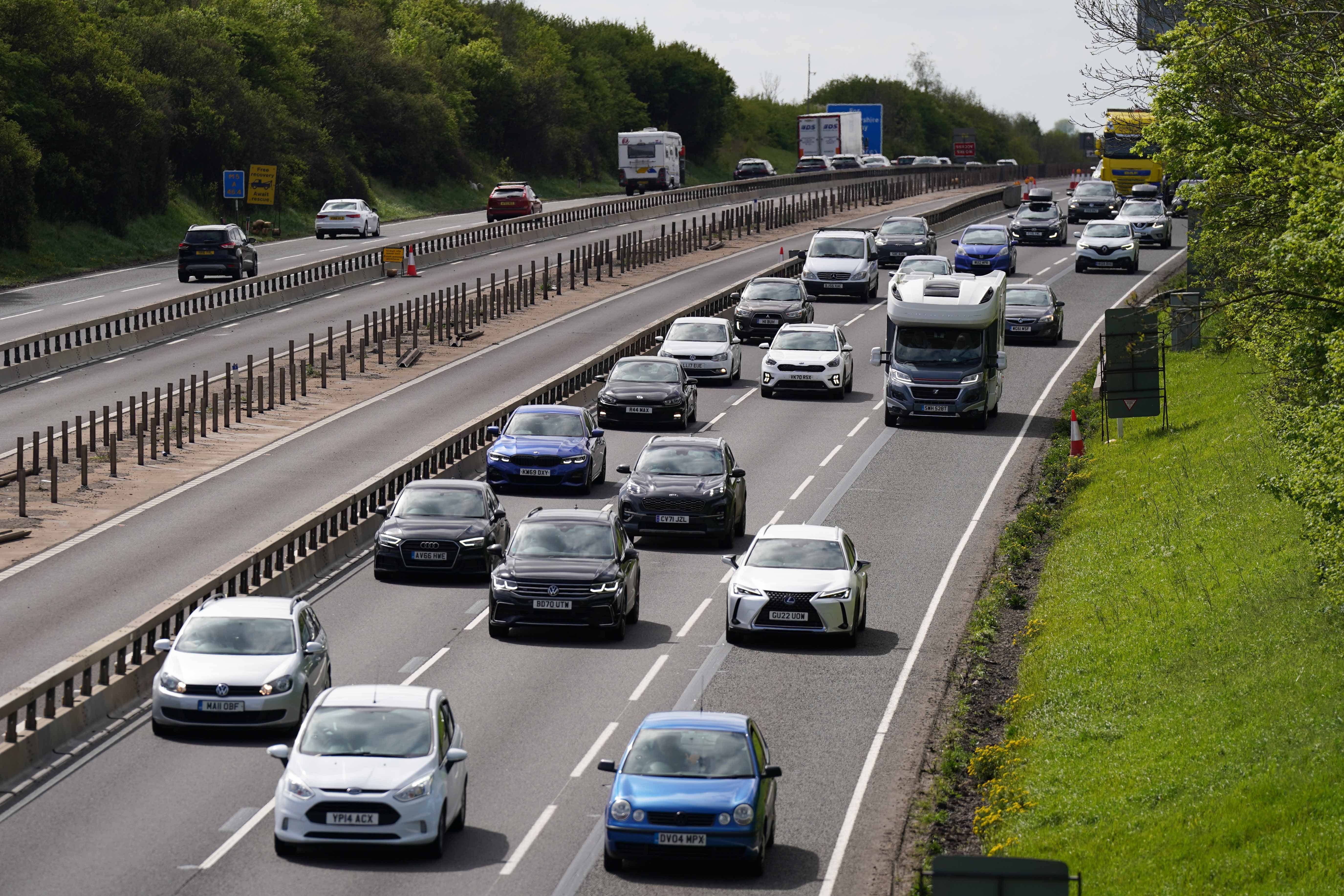Safety concerns raised after approval of hands-free driving system
Ensuring drivers take control quickly enough to avoid a crash has been identified as ‘the biggest challenge’ to semi-autonomous vehicles’ development.

Safety concerns have been raised about the time it will take motorists using self-driving technology to put their hands on the steering wheel in an emergency, after a new system was approved.
Ensuring drivers take control quickly enough to avoid a crash is “the biggest challenge” to the development of semi-autonomous vehicles, according to motoring research charity the RAC Foundation.
The UK has become the first European country to allow drivers on public roads to let go of steering wheels, after the Government gave manufacturer Ford permission to activate its BlueCruise system.
At a cost of £17.99 a month, BlueCruise can be used to control functions such as steering, acceleration, braking and lane positioning on the vast majority of Britain’s motorways.
Although users can take their hands off the wheel, an infrared camera checks they are keeping their eyes on the road in case human intervention is required.
A 2019 study by the RAC Foundation, based on University of Nottingham research, suggested many motorists using self-driving technology would not be prepared to take over control when needed.
Around half of participants had to look at the floor to check their feet were on the correct peddles, while there was also “significant” lane swerving, according to the report.
Following the activation of Ford’s system on Thursday, Steve Gooding, director of the RAC Foundation, said: “Fully driverless cars offer the prospect of a big safety gain by removing the human errors behind so many crashes, but human error will still be with us while we have a mixed fleet of vehicles being driven as well as driving themselves.
“The technology being launched now is not fully autonomous, it is dependent on the driver being ready to intervene, and our research found that it is this ‘hand back’ to the driver that poses the biggest challenge.”
Mr Gooding also stressed the importance of drivers understanding the limitations of their vehicles, particularly once they enter the second-hand market with no direct contact between manufacturers and owners.
He added: “Ironically, as we enter this new world of cars controlling themselves, drivers might actually need more training rather than less, so they fully understand a vehicle’s capabilities.
“Manufacturers are likely to have a big role.”
Technology can make our cars and roads safer but it mustn't give drivers a false sense of security
AA president Edmund King predicted there will be “more changes in automotive technology in the next 10 years than we have seen in the last 50 years”.
He went on: “Technological elements of assisted driving or automatic lane keeping systems will bring in safety benefits, but we should stress that – even with their hands off the wheel – the driver must remain alert to what is going on around them.
“Technology can make our cars and roads safer but it mustn’t give drivers a false sense of security.”
A Department for Transport traffic project for England and Wales warned that delays may rise by up to 85% from 2025 to 2060 if self-driving cars become commonplace.
The analysis was based on connected and autonomous vehicles making up half of the car fleet by 2047, and a “fast uptake” of electric vehicles.
This would lead to more traffic by “increasing the mobility of the elderly and those who do not currently hold a driving licence”, according to the report.
BlueCruise is only available on the 2023 Ford Mustang Mach-E, a pure electric sports utility vehicle (SUV).
If the system detects a driver is not paying attention, warning messages will be displayed on the dashboard, followed by audible alerts and then the automatic slowing of the vehicle.
The same process happens if a vehicle leaves a motorway.
Transport minister Jesse Norman heralded the system’s use in Britian as “great news” and claimed it proves the UK is “once more at the forefront of innovation”.
This country is once more at the forefront of innovation
Lisa Brankin, Ford’s managing director for the UK and Ireland, said the system makes motorway driving “a more comfortable experience”.
Ford engineers conducted test drives of its latest assistance systems, including BlueCruise, covering 100,000 miles on European roads.
Testing in Britain featured routes with hazards such as worn-out lane markings poor weather and roadworks.
Ford said it will roll out BlueCruise to more of its vehicles “in the coming years”.
The system was introduced in the US and Canada last year.
Fully self-driving cars remain banned on public roads in the UK apart from during Government-approved trials.
Legislation to approve the technology could be introduced as early as 2025.
The Mustang Mach-E costs from £50,830.
The first 90 days of BlueCruise is free, after which users are charged the monthly subscription fee.
Bookmark popover
Removed from bookmarks